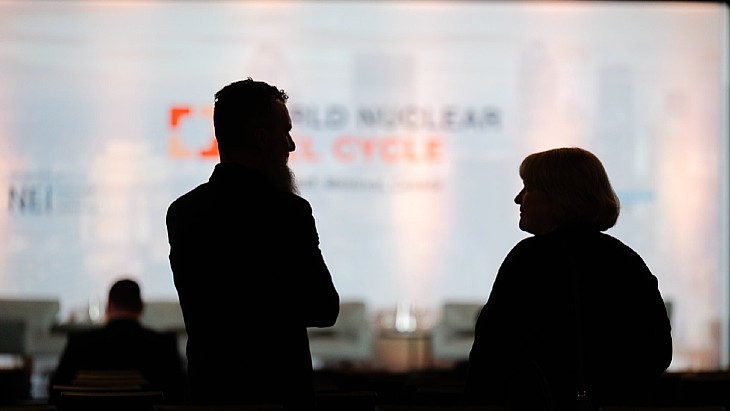Indonesia 'can meet needs with nuclear power'
 UPDATED World Nuclear Association Director General Agneta Rising said today that nuclear power can help Indonesia meet its economic, energy and environmental goals. Speaking at the opening of World Nuclear Spotlight Indonesia 2018, in Jakarta, Rising said she welcomed the Indonesian government's commitment to supporting innovative nuclear technology.
UPDATED World Nuclear Association Director General Agneta Rising said today that nuclear power can help Indonesia meet its economic, energy and environmental goals. Speaking at the opening of World Nuclear Spotlight Indonesia 2018, in Jakarta, Rising said she welcomed the Indonesian government's commitment to supporting innovative nuclear technology.UPDATED - This article has been updated to include comments made at the same event by Kurtubi Umar of the House of Representatives' Commission VII.
World Nuclear Association Director General Agneta Rising said today that nuclear power can help Indonesia meet its economic, energy and environmental goals. Speaking at the opening of World Nuclear Spotlight Indonesia 2018, in Jakarta, Rising said she welcomed the Indonesian government's commitment to supporting innovative nuclear technology.
.jpg) |
| Rising speaking at World Nuclear Spotlight Indonesia 2018 (Image: Batan) |
"I welcome the government’s commitment to supporting innovative nuclear technology, but Indonesia can meet its more immediate energy objectives with cost-effective reactor designs already proven and deployed worldwide." Rising told delegates at the conference.
Indonesia needs to double its electricity generation capacity over the next ten years, and continue that expansion beyond 2050, to improve access to electricity and meet the demand of its growing economy and population, the London-based organisation said. At the same time Indonesia needs to tackle high levels of air pollution and deliver on the commitment made at the COP 21 climate change conference to reduce greenhouse gas emissions by 29% by 2030, it added.
Indonesia has strong public support for nuclear energy and has committed to developing an experimental high temperature reactor, I-EPR. This could lead to new nuclear technologies that would supply electricity, desalinate water and provide district heating and industrial process heat, it said. By also committing to a programme of new build based on current technology Indonesia could benefit from nuclear generation sooner and develop skills that would be transferable to its advanced nuclear programme, it added.
Indonesia's National Atomic Energy Agency (Batan) is promoting the introduction of nuclear power plants to help meet the county's demand for power. It envisages the start-up of conventional large light-water reactors on the populous islands of Bali, Java, Madura and Sumatra from 2027 onwards. In addition, it is planning small HTGRs (up to 100 MWe) for deployment on Kalimantan, Sulawesi and other islands to supply power and heat for industrial use.
Speaking at the event, Kurtubi Umar of the Commission VII - a special parliamentary committee devoted to energy and mining within Indonesia's House of Representatives - said the commission has urged the government to immediately include nuclear power in the country's electricity system.
"A few weeks ago, we took a political stance that the House of Representatives Commission VII urge the government to include nuclear power plants in the national electricity system," Kurtubi said. He added that the committee has called for the House of Representatives to revise legislation on the National Energy Policy "which puts nuclear as a last resort".
Commission VII also encourages the House of Representatives to accelerate the launch of nuclear power plant projects with priority given to locations already identified by studies carried out by Batan. The commission also wants Batan to continue conducting site studies in other potrentail areas, such as West Kalimantan, East Kalimantan and West Nusa Tenggara.
Researched and written
by World Nuclear News



.jpg)






_50521.jpg)

